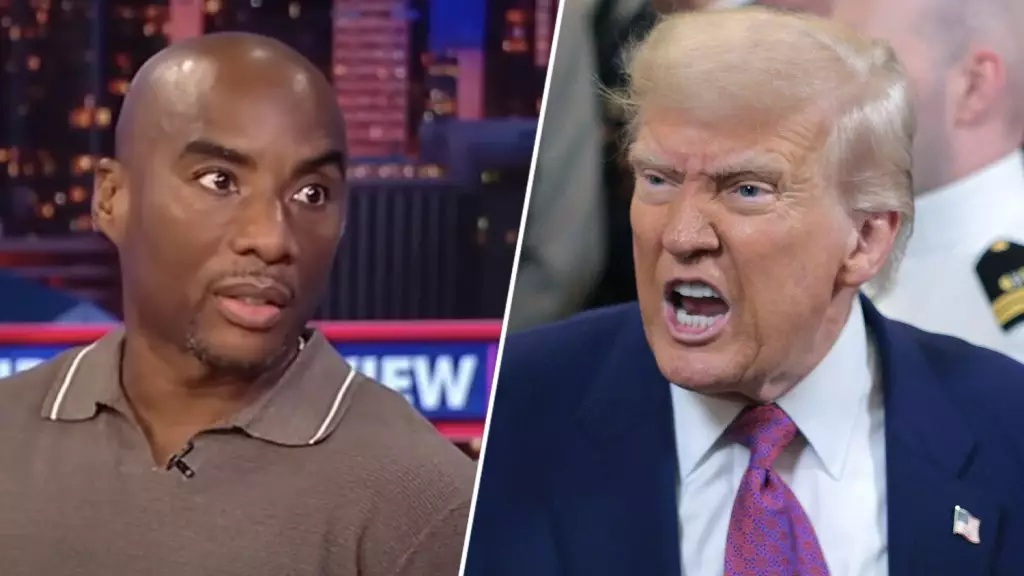In an era where media snakes through every facet of political discourse, the contentious exchange between Lara Trump and Charlamagne Tha God exemplifies how narrative battles extend beyond legislative chambers into living rooms nationwide. Trust in traditional political figures wanes as alternative media personalities sway public opinion, often stirring divisions or fostering critical reflections on power structures. Charlamagne’s unapologetic critique of Trump’s decisions and character, especially regarding controversial topics like Jeffrey Epstein, underscores the inadequacy of sanitized political narratives. His willingness to challenge establishment figures, even amidst Trump’s irate responses, exemplifies a broader shift toward a more confrontational, truth-seeking media environment that refuses to accept convenient narratives.
The divide isn’t simply rhetorical; it influences electoral dynamics and party realignments. When media figures like Charlamagne question the loyalty and direction of the Republican Party, they shake the foundations of political orthodoxy. The clash demonstrates that in the digital age, no figure is immune from scrutiny—not even former presidents—thus democratizing the idea of accountability and highlighting the fragility of traditional power hierarchies.
The Fragile State of American Political Identity
The spat over Jeffrey Epstein and the political implications around it reveal a deeper crisis: the erosion of shared national consensus. Trump’s reaction—calling Charlamagne “a Low IQ individual” and projecting confusion and disdain—brings into focus a leader’s retreat into personal affronts when faced with inconvenient truths. Such reactions expose vulnerabilities, not strength, and reflect an increasingly polarized electorate unable, or unwilling, to face uncomfortable realities.
Further, Charlamagne’s suggestion that “traditional conservatives” are poised to reclaim the Republican Party hints at an internal ideological war. It suggests a Democratic-led shift away from Trump-era populism toward a more traditional conservatism, possibly aiming to restore a sense of legitimacy to American governance. The mention of Jon Stewart’s potential presidential run and Harris’s continued appeal highlight a broader desire for political renewal—an acknowledgment that Trump’s tumultuous style may be a symptom rather than a cure for American political fatigue.
This candid discussion about party control sparks vital questions: Is the nation witnessing a genuine shift back toward moderation, or is this merely a strategic repositioning? The answer hinges on whether political actors can transcend personal loyalty and confront the systemic issues that have historically plagued U.S. democracy—corruption, misinformation, and the cult of personality.
The Media’s Double-Edged Sword: Protection or Propaganda?
While Charlamagne’s critique gains traction, the silence from Murdoch-owned networks like Fox News on Epstein’s scandal underscores a troubling pattern. Media outlets often tend to serve as gatekeepers that shield powerful figures from scrutiny, rather than as watchdogs holding the powerful to account. This selective reporting fosters distrust among viewers, who increasingly see the media as an extension of partisan interests rather than impartial institutions.
The apparent double standard—where liberal outlets highlight Epstein and Trump’s alleged associations, but conservative networks suppress such coverage—illuminates a dangerous trend: the weakening of a shared factual foundation for democracy. Without a common truth, political discourse devolves into tribalism, making compromise impossible and paving the way for authoritarian tendencies. Charlamagne’s willingness to broach sensitive topics on Fox News, despite pushback, hints at the importance of fostering a media ecosystem capable of honest debates—not echo chambers.
The ongoing clash between political figures and media personalities underscores the critical need for integrity and transparency in public discourse. As old alliances fracture and new power players emerge, the battle for narrative control intensifies, shaping the future of American democracy. It is clear that genuine change will require more than superficial shifts—an honest reckoning with uncomfortable truths and a commitment to bridging divides. For democracy to thrive, citizens must demand accountability not only from political leaders but also from the media outlets that inform their perceptions. Only then can the nation hope to navigate its complex identity crisis with resilience and hope for a more authentic, inclusive future.
